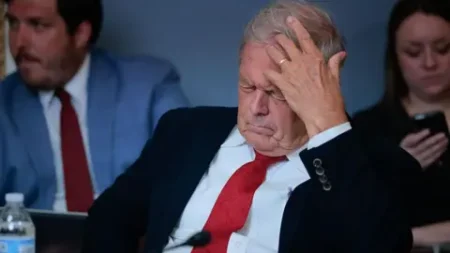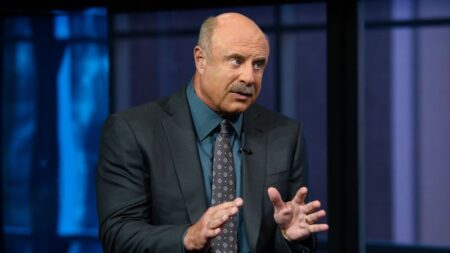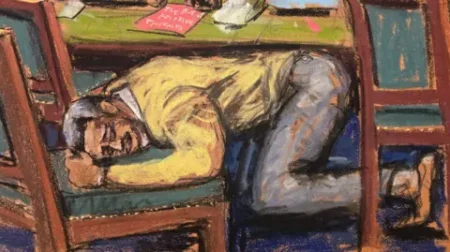**Bob Vylan Dropped from Manchester Music Festival Amid Controversy**
Recently, the punk duo Bob Vylan faced significant backlash following their performance at the Glastonbury Festival. The group has now been officially dropped from the lineup of the Radar Festival scheduled to take place at Victoria Warehouse in Manchester this Saturday. This decision came after organizers released a statement confirming that Bob Vylan would no longer be performing at the event. In addition, the duo was also set to partake in the Kave Festival in France, but that engagement has been canceled as well.
During their controversial performance at Glastonbury, Bob Vylan’s lead singer incited the crowd with chants that included “death, death to the IDF [Israel Defense Forces],” which drew sharp criticism from various political figures, including the Prime Minister. The response described the statements made by Bob Vylan as appalling hate speech, a sentiment that reverberated across social media and traditional news outlets.
In the wake of these events, Bob Vylan took to Instagram to address the denunciations directed at them. They asserted that their provocative stance was aimed not at inciting violence but at speaking out against a much larger issue: a violent military presence. They stated, “We are not for the death of Jews, Arabs or any other race or group of people. We are for the dismantling of a violent military machine.”
In a further elaboration of their intentions, Bob Vylan indicated that they were being targeted not merely for their words but also for their role in bringing attention to systemic problems. They emphasized that they should not be the primary focus; instead, the issues prompting their statements deserve attention.
The fallout continued, with a German venue also confirming that Bob Vylan would no longer be opening for the US band GoGo Bordello at an upcoming concert in September. As for Kave Fest, which is held in Gisors, the festival organizers have promised an official statement elaborating on why they too decided to withdraw Bob Vylan from their lineup.
This situation has sparked widespread discourse, and the BBC itself faced criticism for the decision to stream Bob Vylan’s set, a choice many have deemed irresponsible. Sir Ephraim Mirvis, the Chief Rabbi of the UK, vehemently condemned the airing of what he termed “vile Jew-hate” during the festival’s live broadcast.
The BBC recognized that the sentiments expressed by Bob Vylan were unacceptable and acknowledged their mistakes in handling the situation. They stated, “In hindsight, we should have pulled the stream during the performance. We regret this did not happen.” Likewise, the regulatory body Ofcom has expressed considerable concern regarding the live broadcast, stating that the BBC indeed has questions to answer.
The ongoing controversy surrounding Bob Vylan emphasizes broader societal sentiments regarding artistic expression, political speech, and the boundaries of acceptable discourse within public platforms. The band’s actions have ignited debates about freedom of speech and the responsibilities that public figures hold when addressing contentious topics.
In conclusion, the controversy surrounding Bob Vylan serves as a microcosm of the current climate regarding free expression and artistic responsibility. As they face the repercussions of their actions, the discourse continues on how society balances these complex issues in the public domain.











